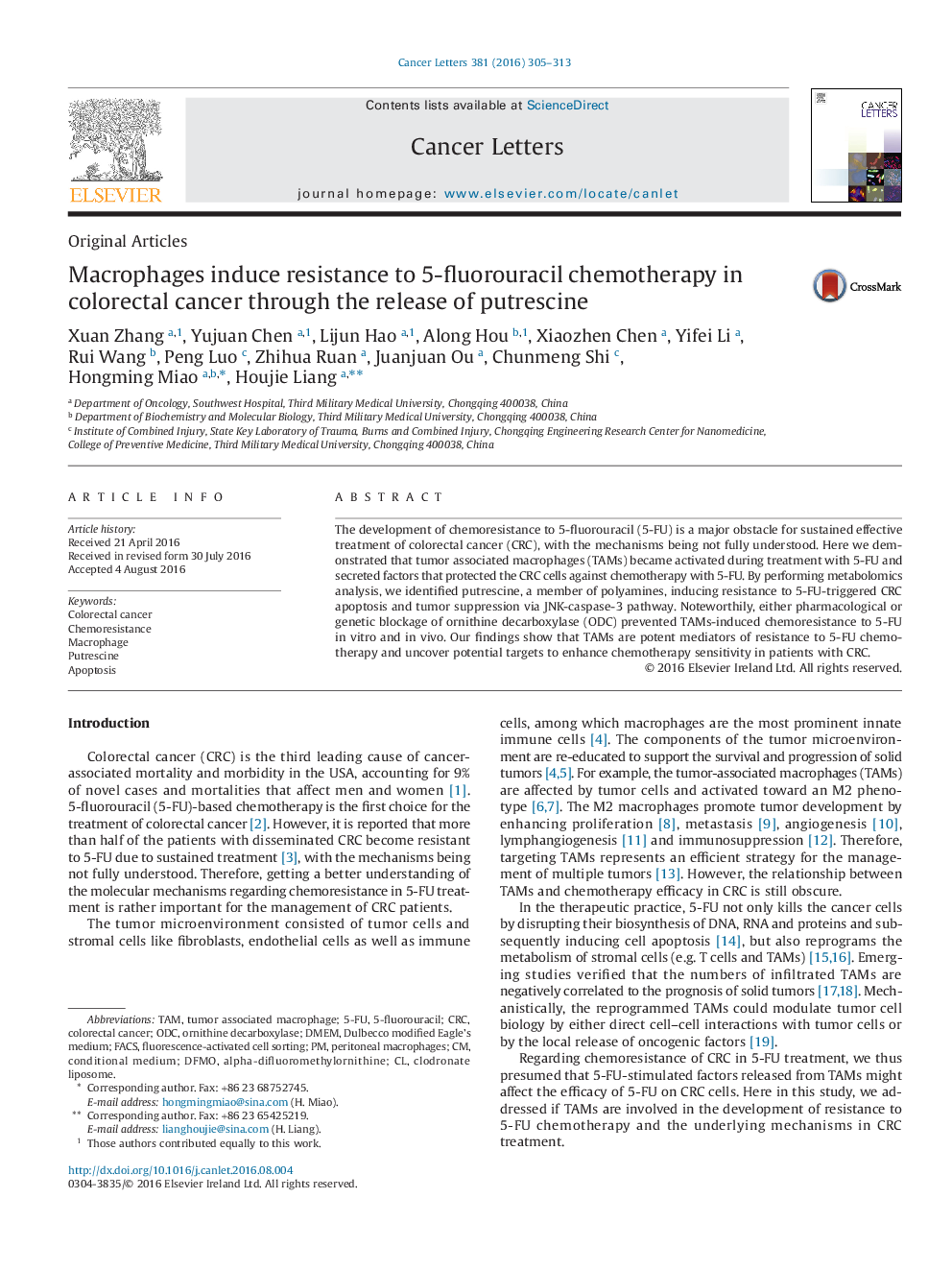| Article ID | Journal | Published Year | Pages | File Type |
|---|---|---|---|---|
| 2112225 | Cancer Letters | 2016 | 9 Pages |
•Tumor associated macrophages (TAMs) induce resistance to 5-FU chemotherapy in colorectal cancer.•5-FU activates putrescine production via ornithine decarboxylase in macrophages.•Putrescine protects colorectal cancer cells from 5-FU-triggered apoptosis through JNK-caspase-3 pathway.•Either pharmacological or genetic blockage of ornithine decarboxylase in TAMs enhances sensitivity of 5-FU chemotherapy in colorectal cancer.
The development of chemoresistance to 5-fluorouracil (5-FU) is a major obstacle for sustained effective treatment of colorectal cancer (CRC), with the mechanisms being not fully understood. Here we demonstrated that tumor associated macrophages (TAMs) became activated during treatment with 5-FU and secreted factors that protected the CRC cells against chemotherapy with 5-FU. By performing metabolomics analysis, we identified putrescine, a member of polyamines, inducing resistance to 5-FU-triggered CRC apoptosis and tumor suppression via JNK-caspase-3 pathway. Noteworthily, either pharmacological or genetic blockage of ornithine decarboxylase (ODC) prevented TAMs-induced chemoresistance to 5-FU in vitro and in vivo. Our findings show that TAMs are potent mediators of resistance to 5-FU chemotherapy and uncover potential targets to enhance chemotherapy sensitivity in patients with CRC.
